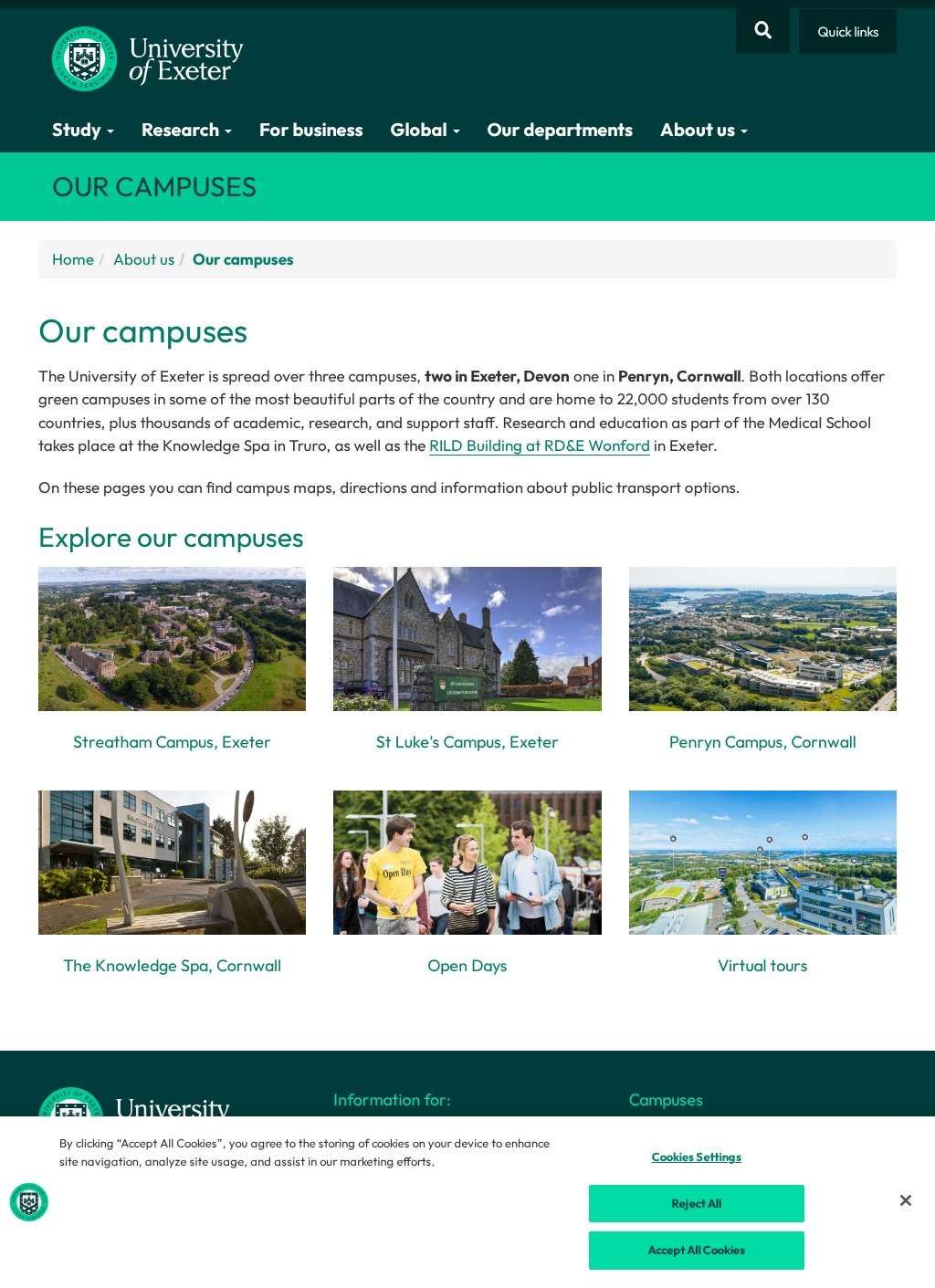Nestled within 100 acres of Cornish countryside near Falmouth, the University of Exeter's Penryn Campus represents a bold experiment in higher education collaboration and environmental research. This distinctive academic community, shared with Falmouth University in an arrangement unique within British higher education, has transformed from a former convent school into a thriving hub of scientific innovation and creative arts since opening in 2004.
The campus emerged from the Combined Universities in Cornwall initiative, a project backed by substantial EU Objective One funding aimed at bringing university-level education to a county historically underserved by higher education. What began as an ambitious plan to boost Cornwall's economic prospects through education has evolved into something far more significant – a world-class research facility that places Cornwall at the forefront of climate science, renewable energy research, and ecological conservation studies.
The academic offerings at Penryn reflect both Cornwall's natural heritage and its future aspirations. The Environment and Sustainability Institute, housed in a striking £30 million building, serves as the campus's intellectual heart. Here, researchers tackle pressing global challenges from ocean acidification to renewable energy systems, often using Cornwall's diverse landscapes as their living laboratory. The Centre for Ecology and Conservation has gained international recognition for its work on everything from seal behavior in Cornish waters to the impact of microplastics on marine ecosystems.
Perhaps most distinctive is the presence of Camborne School of Mines, one of the world's oldest mining schools, which relocated to Penryn in 2004. Founded in 1888 to serve Cornwall's then-thriving tin and copper mining industry, the school has brilliantly reinvented itself for the 21st century. Today's students might study critical mineral extraction for electric vehicle batteries or geothermal energy systems rather than traditional mining, though the fundamental geological expertise remains. The school's graduates are highly sought after globally, particularly as the world grapples with sourcing materials for the green energy transition.
The campus experience differs markedly from traditional university settings. The relatively small student population of around 6,000 creates an intimate academic community where students and staff genuinely know each other. The sharing arrangement with Falmouth University adds an unusual dimension – science and engineering students mingle with artists and designers, creating unexpected collaborations. A marine biologist might work with a photographer to document coastal erosion, or an environmental scientist might partner with a graphic designer to communicate climate data more effectively.
Research facilities at Penryn punch well above their weight. The Science and Engineering Research Support Facility provides cutting-edge laboratories for everything from DNA sequencing to renewable energy testing. The European Centre for Environment and Human Health, which relocated to the campus in 2023, brings medical research into the mix, exploring how environmental factors influence human wellbeing. Field stations dot the Cornish coast, allowing researchers to monitor everything from seabird colonies to tidal energy potential.
Student life at Penryn carries its own distinct flavor, shaped by the campus's rural setting and Cornwall's outdoor culture. The Students' Union, shared between both universities, organizes activities that often involve the natural environment – from surfing clubs making use of nearby beaches to conservation volunteers working on local habitat restoration projects. The campus's sustainability ethos permeates student culture, with initiatives ranging from food waste reduction schemes to renewable energy projects in student accommodation.
The campus's physical development continues apace. The recently opened Stella Turk Building, named after a pioneering Cornish female scientist, provides state-of-the-art facilities for business, mathematics, and law programs alongside expanding science provision. Solar panels crown newer buildings, while careful landscaping preserves the site's natural beauty. The original Tremough House, dating back centuries, now serves as administrative offices and seminar spaces, its historic gardens providing a peaceful retreat from academic pressures.
Industry partnerships play a crucial role in the campus's success. The nearby Tremough Innovation Centre, though technically separate, maintains close links with the university, helping to commercialize research findings and support start-up businesses. Companies working on everything from marine renewable energy to sustainable agriculture frequently collaborate with academic departments, providing students with real-world project experience and potential employment pathways.
Transportation and accessibility present ongoing challenges typical of rural campuses. While regular bus services connect to Falmouth and Penryn town, and the railway station sits within walking distance, many students find cars necessary for accessing field sites or exploring Cornwall's remoter corners. The university has responded with car-sharing schemes and improved cycling infrastructure, though the hilly terrain and Cornish weather can make sustainable transport challenging.
The campus's impact on Cornwall extends far beyond education. It has become a significant employer, attracting highly skilled professionals who might otherwise leave the county. Research conducted here directly benefits local communities, from studies on sustainable fishing practices to renewable energy projects that could transform Cornwall's economy. The presence of thousands of students has revitalized Penryn and Falmouth, supporting local businesses and adding cultural vibrancy to these historic towns.
Looking forward, Penryn Campus appears well-positioned to capitalize on growing global interest in environmental sustainability and renewable energy. Plans for expansion focus on strengthening existing specialisms while developing new programs responding to emerging challenges. The unique collaborative model with Falmouth University continues to evolve, proving that institutions with different focuses can share resources effectively while maintaining distinct identities. For prospective students seeking world-class environmental education in an extraordinary setting, or researchers looking to address planetary challenges from a base where the natural world sits literally on the doorstep, Penryn Campus offers something genuinely special within British higher education.
